
The Committee Goals
The Committee’s goals are to foster collaboration and communication in order to promote an integrated approach to the development, implementation and assessment of Praxis’ programmatic activities and to continuously assess Praxis’ strategic role and contribution in achieving its vision, mission, operation and fundraising goals.
Making an Impact
on Initiatives
The Committee will support Praxis in determining how best to accelerate spinal cord injury (SCI) research into action and contribute toward our vision of a world without paralysis after SCI. A few specific initiatives this Committee will advise on are consumer engagement, biomarkers, neuro-restorative therapies, the SCI Care Program, the SCI Data Strategy, commercialization and emerging areas. In providing input on these specific area, the Committee will support the preparation of our strategic plan and future funding proposals.


 Dr. Anderson-Erisman is a Professor in the Department of Physical Medicine and Rehabilitation at the MetroHealth Medical Center and Case Western Reserve University (CWRU) School of Medicine. Her research has focused on translational investigations and bridging the gap between basic science, clinical science, and the public community living with spinal cord injury (SCI). Her training spans the spectrum of SCI research, from cellular and molecular studies, to whole animal and behavioral studies, to human clinical research. Several of her studies have focused on obtaining the perspective of people living with SCI on various aspects of research, including functional priorities, acceptable benefits and risks, preferences for neuroprosthetics, and exercise participation. She has expertise in SCI outcome measures and has conducted a multi-center clinical study evaluating the reliability and validity of the Spinal Cord Independence Measure in the US healthcare setting.
Dr. Anderson-Erisman is a Professor in the Department of Physical Medicine and Rehabilitation at the MetroHealth Medical Center and Case Western Reserve University (CWRU) School of Medicine. Her research has focused on translational investigations and bridging the gap between basic science, clinical science, and the public community living with spinal cord injury (SCI). Her training spans the spectrum of SCI research, from cellular and molecular studies, to whole animal and behavioral studies, to human clinical research. Several of her studies have focused on obtaining the perspective of people living with SCI on various aspects of research, including functional priorities, acceptable benefits and risks, preferences for neuroprosthetics, and exercise participation. She has expertise in SCI outcome measures and has conducted a multi-center clinical study evaluating the reliability and validity of the Spinal Cord Independence Measure in the US healthcare setting.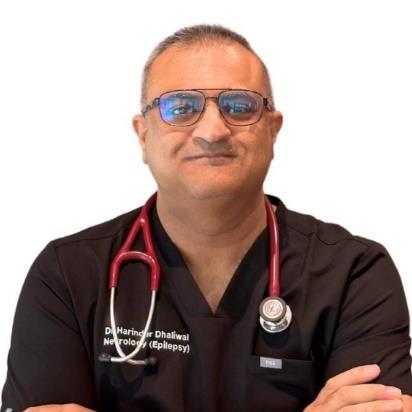 Dr. Dhaliwal, a dedicated Neurologist and Epileptologist, completed his medical education at the Armed Forces Medical College in India before pursuing his Neurology Residency at the University of Calgary. He further honed his expertise with a fellowship in Epilepsy, Clinical Neurophysiology, and Critical Care EEG at Yale University. Currently, Dr. Dhaliwal practices at Fraser Health, where he aims to establish an Epilepsy surgery program, a ketogenic diet clinic, and a critical care EEG program in Surrey.
Dr. Dhaliwal, a dedicated Neurologist and Epileptologist, completed his medical education at the Armed Forces Medical College in India before pursuing his Neurology Residency at the University of Calgary. He further honed his expertise with a fellowship in Epilepsy, Clinical Neurophysiology, and Critical Care EEG at Yale University. Currently, Dr. Dhaliwal practices at Fraser Health, where he aims to establish an Epilepsy surgery program, a ketogenic diet clinic, and a critical care EEG program in Surrey.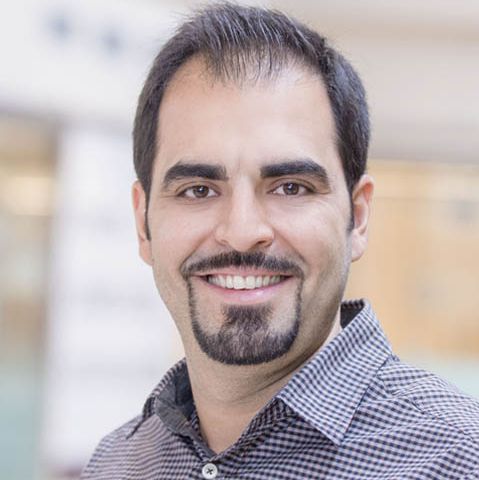 Dr. Etemad is an Associate Professor and a Mitchell Professor in AI for Human Sensing & Understanding at the Department of Electrical and Computer Engineering, Queen’s University, Canada, where he leads the Ambient Intelligence and Interactive Machines (Aiim) lab. He received his MASc and PhD degrees in Electrical and Computer Engineering from Carleton University, Ottawa, Canada, in 2009 and 2014, respectively. His main areas of research are machine learning and deep learning focused on human-centered applications with wearables, smart devices, and smart environments.
Dr. Etemad is an Associate Professor and a Mitchell Professor in AI for Human Sensing & Understanding at the Department of Electrical and Computer Engineering, Queen’s University, Canada, where he leads the Ambient Intelligence and Interactive Machines (Aiim) lab. He received his MASc and PhD degrees in Electrical and Computer Engineering from Carleton University, Ottawa, Canada, in 2009 and 2014, respectively. His main areas of research are machine learning and deep learning focused on human-centered applications with wearables, smart devices, and smart environments. Sean Gjos provides fractional executive-level consulting services to emerging healthcare technology companies. Previously, he founded a mental health clinic and was a Partner in a private equity firm, where he helped healthcare service companies navigate the challenges of growth. Sean is also the honorary chairperson for SCORE Fund, a non-profit that assists people paralyzed while participating in sports. Sean earned a B.A. from Brown University, an M.B.A. from UCLA’s Anderson Graduate School of Management, and the ICD.D designation by completing the Institute of Corporate Directors Education Program.
Sean Gjos provides fractional executive-level consulting services to emerging healthcare technology companies. Previously, he founded a mental health clinic and was a Partner in a private equity firm, where he helped healthcare service companies navigate the challenges of growth. Sean is also the honorary chairperson for SCORE Fund, a non-profit that assists people paralyzed while participating in sports. Sean earned a B.A. from Brown University, an M.B.A. from UCLA’s Anderson Graduate School of Management, and the ICD.D designation by completing the Institute of Corporate Directors Education Program.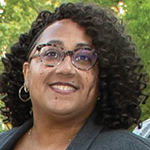 Dr. Graves is an Assistant Professor on the tenure-track at the University of Texas Medical Branch (UTMB), School of Nursing (SON). She has taught across curriculums including undergraduate and graduate nursing students, and in her current academic role, she is a course coordinator for the Nursing Science I & II courses for predoctoral PhD nursing students. She also holds a joint appointment with the Louis Stokes Cleveland VA Medical Center as a Research Health Scientist. Her research is focused on investigating how symptom science can be used to help explain, predict, and manage symptoms and multimorbidity following spinal cord injury (SCI) primarily in the Veteran population. In 2021, she was selected for the inaugural VA Office of Research DEI scholars’ program where she received funding to conduct a pilot study that expanded analysis of genomic biomarkers of recurrent pressure injury in Veterans with SCI to include environmental and lifestyle risks or epigenetic impacts on recurrent pressure injury. This work continues to be expanded to include other co-morbid secondary health conditions that are highly relevant to Veterans living with SCI including disturbed sleep, fatigue, and depression.
Dr. Graves is an Assistant Professor on the tenure-track at the University of Texas Medical Branch (UTMB), School of Nursing (SON). She has taught across curriculums including undergraduate and graduate nursing students, and in her current academic role, she is a course coordinator for the Nursing Science I & II courses for predoctoral PhD nursing students. She also holds a joint appointment with the Louis Stokes Cleveland VA Medical Center as a Research Health Scientist. Her research is focused on investigating how symptom science can be used to help explain, predict, and manage symptoms and multimorbidity following spinal cord injury (SCI) primarily in the Veteran population. In 2021, she was selected for the inaugural VA Office of Research DEI scholars’ program where she received funding to conduct a pilot study that expanded analysis of genomic biomarkers of recurrent pressure injury in Veterans with SCI to include environmental and lifestyle risks or epigenetic impacts on recurrent pressure injury. This work continues to be expanded to include other co-morbid secondary health conditions that are highly relevant to Veterans living with SCI including disturbed sleep, fatigue, and depression.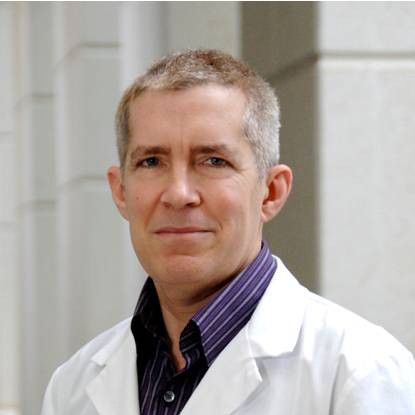 Dr. Guest is currently a Professor of Neurological Surgery at the Miller School of Medicine and the Miami Project to Cure Paralysis in Miami, FL. Previously, Dr. Guest held numerous hospital appointments, such as Attending Neurosurgeon at the Barrow Neurological Institute, West Palm Beach VA Medical Center and the University of Miami Hospital and Chief of Spinal Neurosurgery at Miami Veterans Medical Center. Dr. Guest has authored over 75 peer-reviewed publications, including articles, book chapters and abstracts in the areas of cellular therapy for spinal cord injury, biology of neuroglia and mechanisms of secondary injury. He has been active in research design for human clinical trials, participating as a Principal Investigator for the North American Clinical Trials Network (NACTN) for the Treatment of Spinal Cord Injury. Dr. Guest earned a B.A. in economics and political science, a B.S. in chemistry and biology and a Medical Degree from the University of Alberta. He also earned a Ph.D. from the University of Miami, Department of Neuroscience. Dr. Guest completed his residency in the Division of Neurosurgery at the University of British Columbia and a fellowship in Spinal Surgery at the Barrow Neurological Institute.
Dr. Guest is currently a Professor of Neurological Surgery at the Miller School of Medicine and the Miami Project to Cure Paralysis in Miami, FL. Previously, Dr. Guest held numerous hospital appointments, such as Attending Neurosurgeon at the Barrow Neurological Institute, West Palm Beach VA Medical Center and the University of Miami Hospital and Chief of Spinal Neurosurgery at Miami Veterans Medical Center. Dr. Guest has authored over 75 peer-reviewed publications, including articles, book chapters and abstracts in the areas of cellular therapy for spinal cord injury, biology of neuroglia and mechanisms of secondary injury. He has been active in research design for human clinical trials, participating as a Principal Investigator for the North American Clinical Trials Network (NACTN) for the Treatment of Spinal Cord Injury. Dr. Guest earned a B.A. in economics and political science, a B.S. in chemistry and biology and a Medical Degree from the University of Alberta. He also earned a Ph.D. from the University of Miami, Department of Neuroscience. Dr. Guest completed his residency in the Division of Neurosurgery at the University of British Columbia and a fellowship in Spinal Surgery at the Barrow Neurological Institute.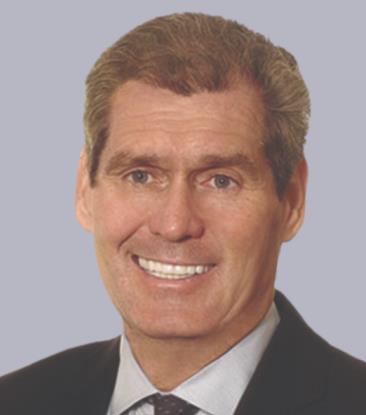 Clay Horner, a distinguished advisor in mergers and acquisitions, retired from Osler, Hoskin & Harcourt LLP in 2018 after a remarkable career. He earned a national and international reputation for his expertise in guiding senior management and boards of directors of prominent public and private corporations through complex transactions. With extensive experience in cross-border deals, Clay acted on numerous significant transactions in collaboration with U.S. and international law firms and investment banks.
Clay Horner, a distinguished advisor in mergers and acquisitions, retired from Osler, Hoskin & Harcourt LLP in 2018 after a remarkable career. He earned a national and international reputation for his expertise in guiding senior management and boards of directors of prominent public and private corporations through complex transactions. With extensive experience in cross-border deals, Clay acted on numerous significant transactions in collaboration with U.S. and international law firms and investment banks.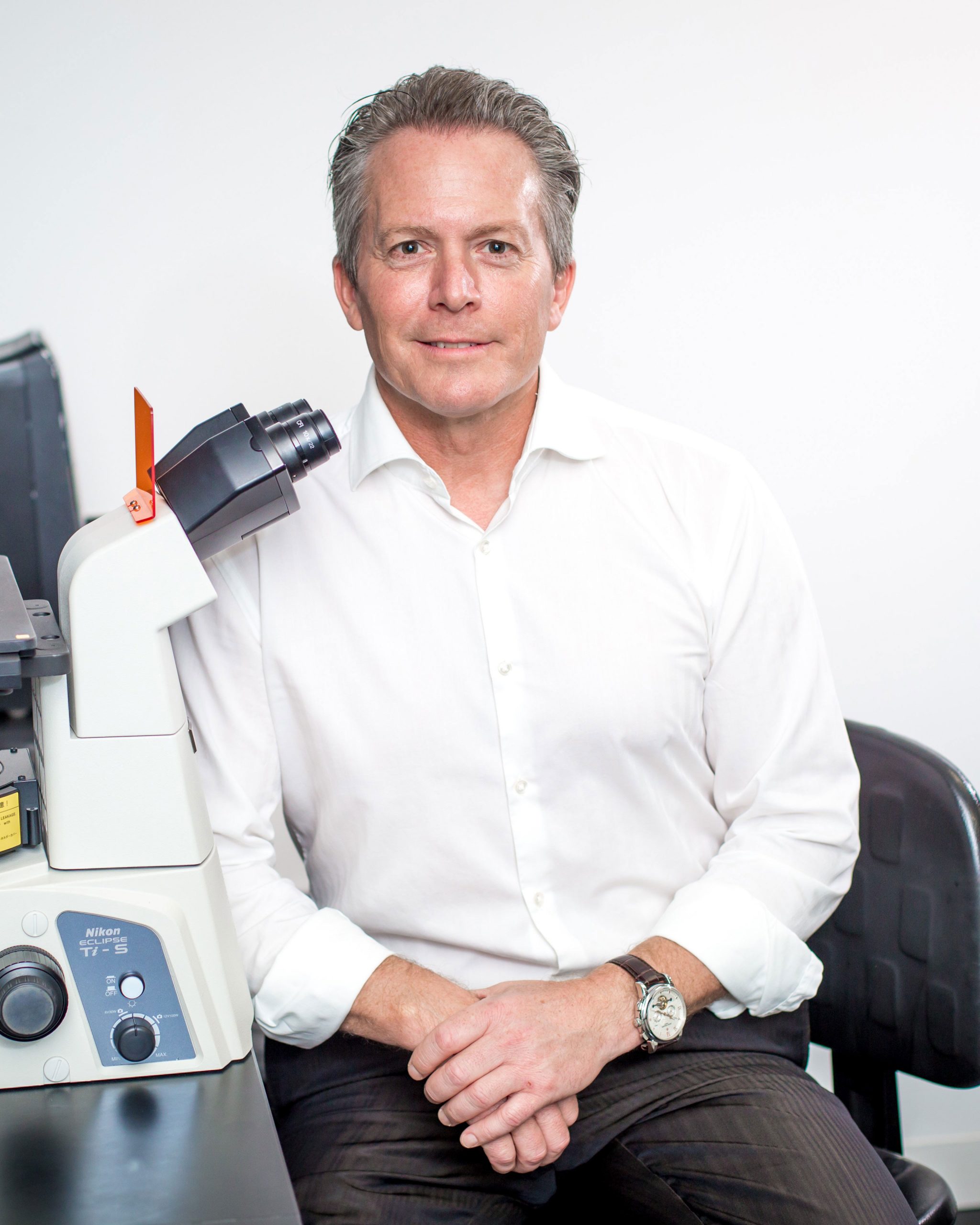 Dr. Keirstead is an internationally recognized stem cell expert and entrepreneur in regenerative medicine. He has pioneered therapies for cancer, immune disorders, motor neuron diseases, spinal cord injury, retinal diseases, immune disorders, age-related immune decline, and has created a novel multi-pathogen vaccine kit. Each of Dr. Keirstead’s three biotechnology firms was sold to major pharmaceutical companies for 2.5X-9.5X returns to investors after return of investment capital. Currently, he holds board positions in several leading biotechs including AIVITA Biomedical, Immunis Inc., and the global Human Immune Project.
Dr. Keirstead is an internationally recognized stem cell expert and entrepreneur in regenerative medicine. He has pioneered therapies for cancer, immune disorders, motor neuron diseases, spinal cord injury, retinal diseases, immune disorders, age-related immune decline, and has created a novel multi-pathogen vaccine kit. Each of Dr. Keirstead’s three biotechnology firms was sold to major pharmaceutical companies for 2.5X-9.5X returns to investors after return of investment capital. Currently, he holds board positions in several leading biotechs including AIVITA Biomedical, Immunis Inc., and the global Human Immune Project. 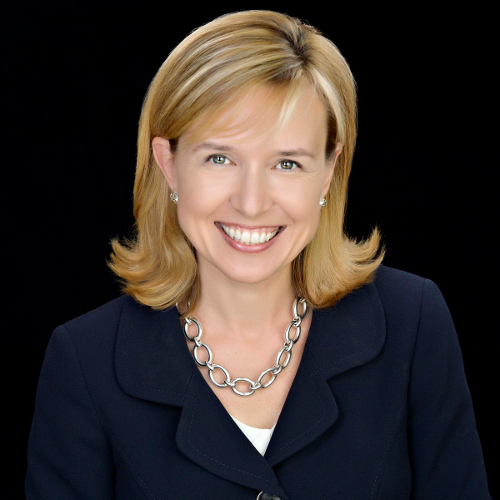 Ms. Lafferty is a management consultant and the former CEO of the Heart and Stroke Foundation Canadian Partnership for Stroke Recovery (CPSR), a national organization focused on collaborative research, training, and knowledge translation in stroke recovery. In this role, she led the development of a new strategic plan, a national expansion, and the creation of a pan-Canadian clinical trials network and trainee network. In 2023 she led the wind-down of the corporation and migration of key CPSR activities and staff to a sustainable business model: CanStroke Recovery Trials. Prior to this role, Ms. Lafferty served for twelve years as the Executive Director of the Canadian Stroke Network, a non-profit entity funded by the federal Networks of Centres of Excellence (NCE) program. In that role, she oversaw the development and implementation of the Canadian Stroke Strategy and the Canadian Stroke Congress. Ms. Lafferty currently serves as a Governor of The Ottawa Hospital, Chair of the Board of the Ottawa Hospital Research Institute, and member of the Executive Committee for The Ottawa Hospital’s $500M fundraising campaign. She continues to advise national research networks and has participated as a panel member and Chair of external review panels for large-scale national research investments. Ms. Lafferty and her husband founded and own two award-winning independent compounding pharmacies in Ottawa, for which she provides business planning and financial oversight.
Ms. Lafferty is a management consultant and the former CEO of the Heart and Stroke Foundation Canadian Partnership for Stroke Recovery (CPSR), a national organization focused on collaborative research, training, and knowledge translation in stroke recovery. In this role, she led the development of a new strategic plan, a national expansion, and the creation of a pan-Canadian clinical trials network and trainee network. In 2023 she led the wind-down of the corporation and migration of key CPSR activities and staff to a sustainable business model: CanStroke Recovery Trials. Prior to this role, Ms. Lafferty served for twelve years as the Executive Director of the Canadian Stroke Network, a non-profit entity funded by the federal Networks of Centres of Excellence (NCE) program. In that role, she oversaw the development and implementation of the Canadian Stroke Strategy and the Canadian Stroke Congress. Ms. Lafferty currently serves as a Governor of The Ottawa Hospital, Chair of the Board of the Ottawa Hospital Research Institute, and member of the Executive Committee for The Ottawa Hospital’s $500M fundraising campaign. She continues to advise national research networks and has participated as a panel member and Chair of external review panels for large-scale national research investments. Ms. Lafferty and her husband founded and own two award-winning independent compounding pharmacies in Ottawa, for which she provides business planning and financial oversight. 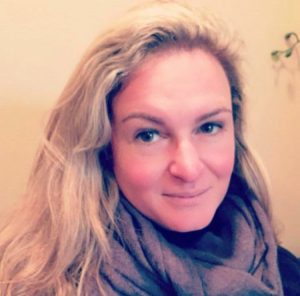 Michelle McDonald has over 25 years of experience in the non-profit sector and currently serves as the Chief Executive Officer of Brain Injury Canada. In this role, she has guided the organization in a new strategic direction, establishing it as a reputable source of information, a knowledge mobilizer, and an ally for individuals with lived experiences, their families, healthcare and service providers, and the medical and research communities. Michelle is the Co-Chair of the Governing Council for Neurological Health Charities Canada and a member of the Executive Committees of both the Canadian Traumatic Brain Injury Research Consortium and the Canadian Concussion Network. Additionally, she serves on the Canadian Transportation Agency’s Accessibility Advisory Committee.
Michelle McDonald has over 25 years of experience in the non-profit sector and currently serves as the Chief Executive Officer of Brain Injury Canada. In this role, she has guided the organization in a new strategic direction, establishing it as a reputable source of information, a knowledge mobilizer, and an ally for individuals with lived experiences, their families, healthcare and service providers, and the medical and research communities. Michelle is the Co-Chair of the Governing Council for Neurological Health Charities Canada and a member of the Executive Committees of both the Canadian Traumatic Brain Injury Research Consortium and the Canadian Concussion Network. Additionally, she serves on the Canadian Transportation Agency’s Accessibility Advisory Committee.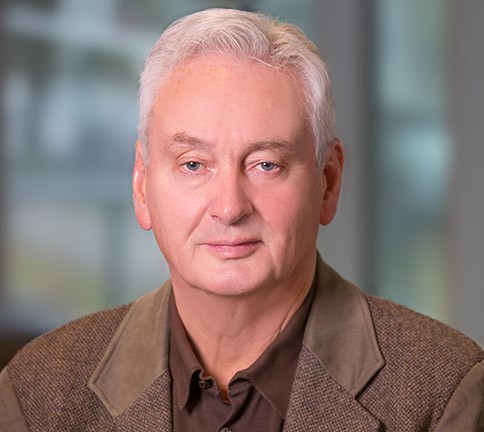 Dr. Sutcliffe has a broad medical career including research in microbiology and immunology, clinical research in oncology, and leadership in the management of cancer care. Dr. Sutcliffe is a clinical oncologist (retired), and has been the President & CEO of the Princess Margaret Hospital/Ontario Cancer Institute (1994-96) and the BC Cancer Agency (2000- 09). His Board appointments include Premier Diversified Holdings (including Premier Diagnostics Centre/INITIO Medical Innovations), InspireHealth, Omnitura Inc., QuBiologics Inc., the International Cancer Control Congress Association, Two Worlds Cancer Collaboration – INCTR Canada, the Institute for Health Systems Transformation and Sustainability (2010-16); the Canadian Partnership Against Cancer (2009-12), the Michael Smith Foundation for Health Research (2000-07), and Genome BC (2000-08).
Dr. Sutcliffe has a broad medical career including research in microbiology and immunology, clinical research in oncology, and leadership in the management of cancer care. Dr. Sutcliffe is a clinical oncologist (retired), and has been the President & CEO of the Princess Margaret Hospital/Ontario Cancer Institute (1994-96) and the BC Cancer Agency (2000- 09). His Board appointments include Premier Diversified Holdings (including Premier Diagnostics Centre/INITIO Medical Innovations), InspireHealth, Omnitura Inc., QuBiologics Inc., the International Cancer Control Congress Association, Two Worlds Cancer Collaboration – INCTR Canada, the Institute for Health Systems Transformation and Sustainability (2010-16); the Canadian Partnership Against Cancer (2009-12), the Michael Smith Foundation for Health Research (2000-07), and Genome BC (2000-08).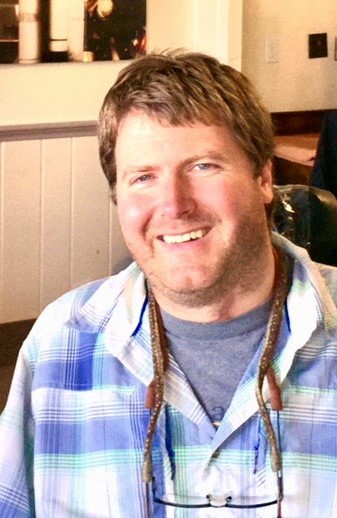 Mr. Wudlick is Treasurer and Co-Founder of Get Up Stand Up to Cure Paralysis and a research project manager at the University of Minnesota. In April of 2011, he suffered a C4-5 spinal cord injury from a diving accident on a rafting trip down the Grand Canyon. Since that time, he has worked tirelessly to advance medical research and to advocate for the spinal cord injury community. He serves on the Minnesota State Council for Spinal Cord & Traumatic Brain Injury Research Grant Program, and is an Advocacy Advisor for many national spinal cord injury research organizations. In 2019 he spoke at the NIH meeting “Launching a Decade for Disruption in SCI Research” to share his experience living with SCI. He attended Montana State University, Bozeman, and has a degree in Industrial & Management Engineering.
Mr. Wudlick is Treasurer and Co-Founder of Get Up Stand Up to Cure Paralysis and a research project manager at the University of Minnesota. In April of 2011, he suffered a C4-5 spinal cord injury from a diving accident on a rafting trip down the Grand Canyon. Since that time, he has worked tirelessly to advance medical research and to advocate for the spinal cord injury community. He serves on the Minnesota State Council for Spinal Cord & Traumatic Brain Injury Research Grant Program, and is an Advocacy Advisor for many national spinal cord injury research organizations. In 2019 he spoke at the NIH meeting “Launching a Decade for Disruption in SCI Research” to share his experience living with SCI. He attended Montana State University, Bozeman, and has a degree in Industrial & Management Engineering.